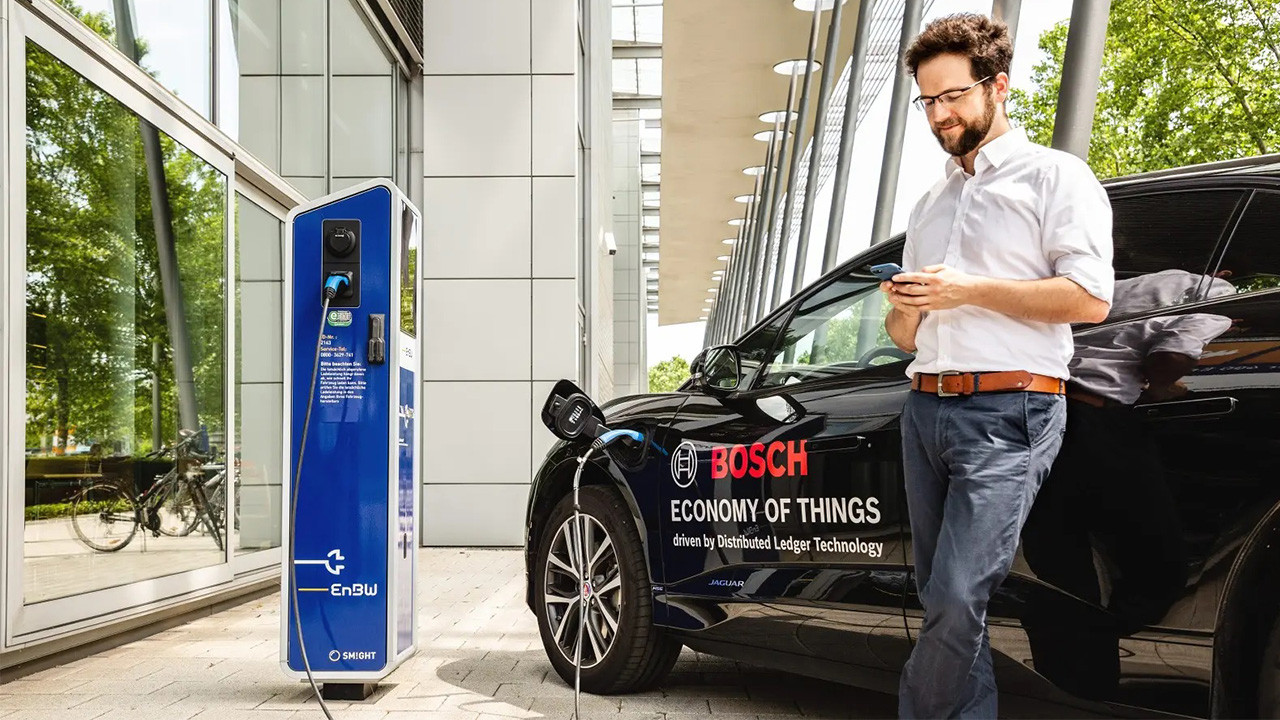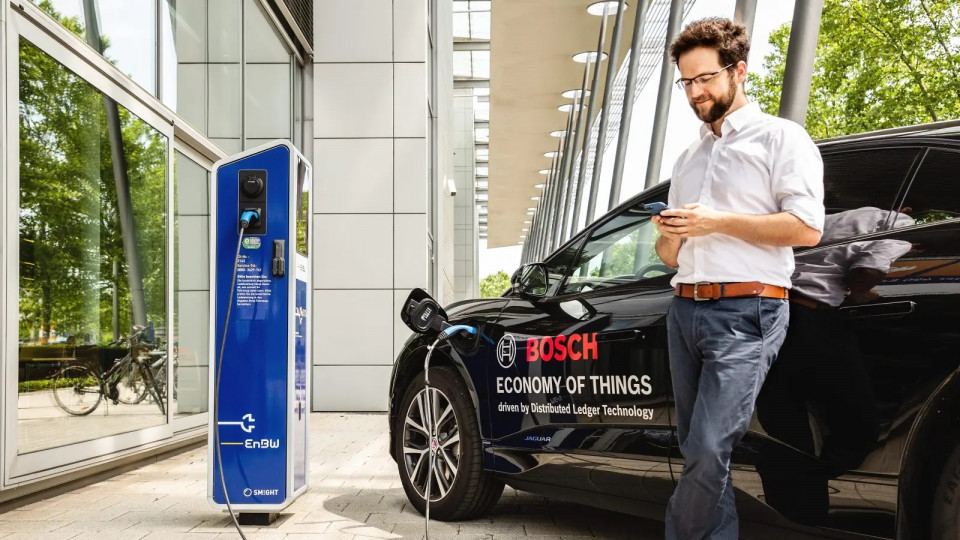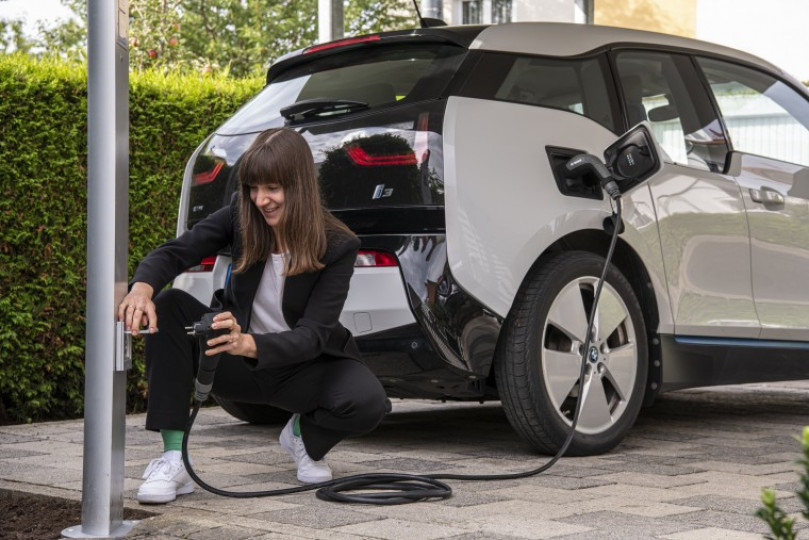Budapest – The popularity of electric cars among the Hungarian population has increased significantly, with three times as many people considering buying an electric car today than four years ago, according to a representative survey1 commissioned by Robert Bosch Kft. and conducted by the Medián Public Opinion and Market Research Institute. Although the vast majority of privately owned cars are still petrol or diesel powered, the number of cars with alternative powertrains has increased significantly since 2018.
"Our research shows that there is an increased demand for environmentally friendly driving among the Hungarian population, and trends suggest that electromobility will become more widespread and dominant in the coming years. At the same time, conventional internal combustion engines will continue to play an important role in the transition to electromobility," said Péter Gergen, director of electromobility development at Bosch Budapest Engineering Center. "Bosch is open to all future powertrain technologies, is also continuously developing combustion engines and is a committed supporter of zero emission driving," he added.
Milestone in alternative drive share
According to the survey, the share of privately-owned alternative drive cars has risen to 5 percent from around 1 percent in previous years. In practice, this means that 5 out of 100 cars in the Hungarian car fleet are now alternative, i.e. gas (LPG or CNG), electric, hybrid or plug-in hybrid. Two thirds of the Hungarian car fleet — 63 percent — are still petrol cars, but there are 19 percentage point fewer of them on the road than four years ago. Meanwhile, the share of diesel cars has risen by 15 percentage point, from 17 percent in 2018 to 32 percent.
More people would buy an electric car
Compared to Bosch's last survey in 2018, electric cars are gaining traction among the overall population. Responses show that today as many people would buy an electric car (27 percent) as would buy a hybrid or plug-in hybrid (27 percent). Almost as many would choose a petrol car (26 percent), while only 9 percent of respondents would buy a diesel. Overall, interest in electric cars has more than tripled in the last four years, with the popularity of diesel cars falling by the largest margin, by 50 per cent.
Focus on the environment
The main reason for choosing an electric car is the environment – cited by 72 per cent of respondents who are open to such a car – but cheaper maintenance and quiet operation were also cited as important factors. However, for the overall population, the main reasons for choosing a mode of transport are predictability, followed by comfort, low maintenance costs and environmental protection.
Bosch paves the way for electromobility
By 2035, it is expected that 60 percent of all newly registered vehicles worldwide will be electric cars. Bosch aims to make Budapest the R&D hub of East-Central Europe through the development of electric and hybrid powertrains and other technical solutions. In addition to its extensive R&D activities, Bosch in Hungary also manufactures electric drive systems and e-mobility components at its sites in Hatvan, Miskolc and Maklár.
1The survey was conducted by Medián using an omnibus survey, a telephone (CATI) method with a random sample of 1000 respondents. The survey is representative in terms of gender, age, educational attainment and place of residence in the age group 18 years and older.
Mónika Hack
+36 70 510 5516
Bosch has been present in Hungary since 1898 with its products. After its re-establishment as a regional trading company in 1991, Bosch has grown into one of Hungary’s largest foreign industrial employers with currently eight subsidiaries. In fiscal 2020 it had total net sales of 1,497 billion forints and consolidated sales to third parties on the Hungarian market of 238 billion forints. The Bosch Group in Hungary employs more than 15,500 associates (as of December 31, 2020). Figures of fiscal 2021 for the Bosch Group in Hungary will be available from May 26, 2022. In addition to its manufacturing, commercial and development business, Bosch has a network of sales and service operations that covers the entire country.
The Bosch Group is a leading global supplier of technology and services. It employs roughly 401,300 associates worldwide (as of December 31, 2021). According to preliminary figures, the company generated sales of 78.8 billion euros in 2021. Its operations are divided into four business sectors: Mobility Solutions, Industrial Technology, Consumer Goods, and Energy and Building Technology. As a leading IoT provider, Bosch offers innovative solutions for smart homes, Industry 4.0, and connected mobility. Bosch is pursuing a vision of mobility that is sustainable, safe, and exciting. It uses its expertise in sensor technology, software, and services, as well as its own IoT cloud, to offer its customers connected, cross-domain solutions from a single source. The Bosch Group’s strategic objective is to facilitate connected living with products and solutions that either contain artificial intelligence (AI) or have been developed or manufactured with its help. Bosch improves quality of life worldwide with products and services that are innovative and spark enthusiasm. In short, Bosch creates technology that is “Invented for life.” The Bosch Group comprises Robert Bosch GmbH and its roughly 440 subsidiary and regional companies in some 60 countries. Including sales and service partners, Bosch’s global manufacturing, engineering, and sales network covers nearly every country in the world. With its more than 400 locations worldwide, the Bosch Group has been carbon neutral since the first quarter of 2020. The basis for the company’s future growth is its innovative strength. At 128 locations across the globe, Bosch employs some 76,300 associates in research and development, of which more than 38,000 are software engineers.
Additional information is available online at www.bosch.hu, iot.boschblog.hu, www.bosch.com, www.iot.bosch.com, www.bosch-press.com, www.twitter.com/BoschPresse





